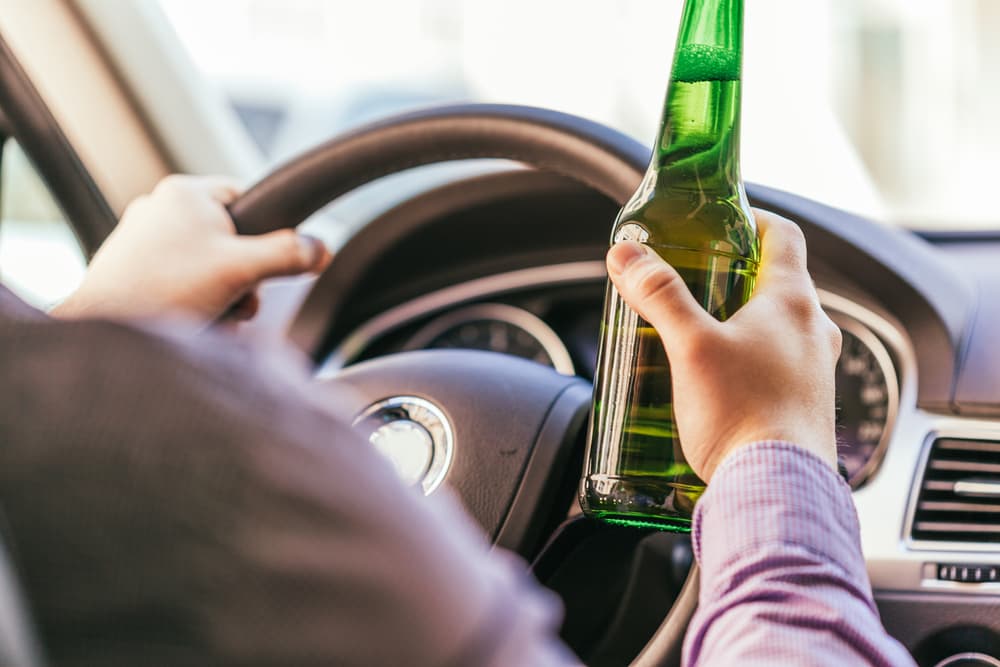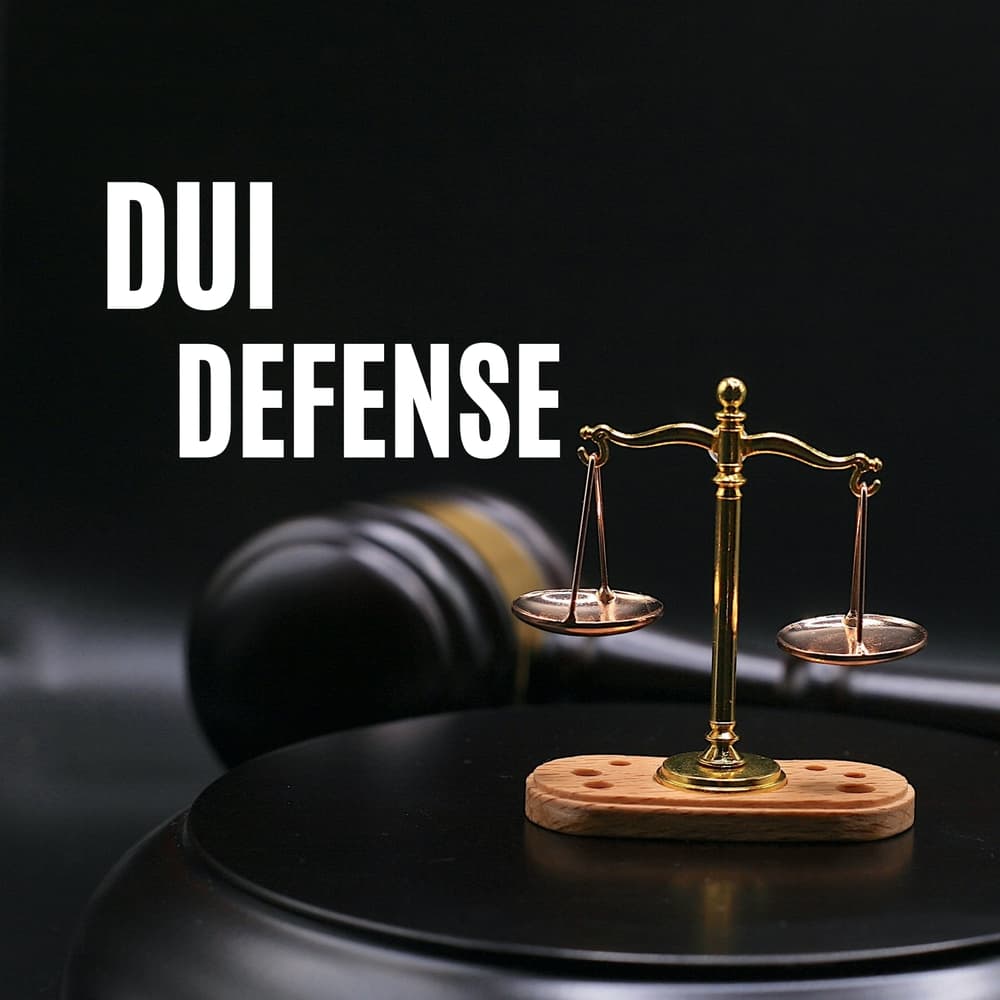A DUI (driving under the influence) charge occurs when someone operates a vehicle while impaired by alcohol or drugs.
If police arrest you for DUI, hire an experienced Greenville, SC DUI defense attorney. A lawyer can protect your rights, analyze evidence, and challenge any mistakes that law enforcement may have made. They can question the accuracy of Breathalyzer tests, field sobriety tests, or improper arrest procedures, potentially weakening the prosecution’s case.
Additionally, a skilled attorney can negotiate with prosecutors for reduced charges or penalties – or even secure alternatives like probation or treatment programs. If your case goes to trial, an experienced attorney will defend you in court, giving you the best chance for a favorable outcome.
Elements of a DUI Charge
To successfully convict someone of DUI, a prosecutor must prove certain legal elements beyond a reasonable doubt. These elements ensure that the person charged actually committed a DUI offense.
A prosecutor must establish:
- Driving or Operating a Vehicle: The prosecutor must first show that the accused (defendant) actually drove or controlled a vehicle. This includes not just driving but also operating the vehicle in some way. For example, if someone is found sitting in the driver’s seat of a car with the engine running, they may still be charged with DUI, even if the car is not moving.
- Under the Influence of Alcohol or Drugs: The prosecutor must also prove that the defendant was under the influence of alcohol, drugs, or a combination of both while driving. This is typically shown through physical evidence like a blood alcohol content (BAC) test or drug test. In most places, a BAC of 0.08 percent or higher is the legal limit for adults. If the defendant’s BAC is at or above this level, it is generally proof of driving under the influence. The prosecutor may use field sobriety tests, drug testing, or expert testimony to show impairment from other drugs.
- Impairment of Ability to Drive Safely: It’s not enough just to show that a person had alcohol or drugs in their system. The prosecutor also needs to prove that this impairment made it unsafe for the person to drive. Erratic driving (weaving, speeding, or running stop signs) or the results of field sobriety tests can measure a person’s coordination and ability to follow instructions.
- Knowledge of the Offense: In some cases, the prosecutor may need to show that the driver knew they were impaired or should have known. A person who is drunk or high should recognize their own state of impairment. However, the prosecution doesn’t always have to prove this element if there is other clear evidence of impairment, like test results.
Potential Penalties and Collateral Consequences of a DUI Conviction
If the court convicts you of a DUI, you face severe penalties and many long-term collateral consequences that affect your life beyond the immediate legal outcomes.
The penalties for a DUI conviction vary based on the severity of the offense, whether it’s a first-time or repeat offense, and any aggravating circumstances, such as injury or property damage.
Criminal Penalties

Fines: One of the most common penalties for DUI is a monetary fine. For a first offense, fines typically range from $500 to $1,500, depending on the jurisdiction. For repeat offenders or those with aggravating factors (like a high blood alcohol content or BAC), fines can be much higher.
License Suspension: A DUI conviction often results in the suspension or revocation of your driver’s license. For a first offense, suspension can last from several months to a year. For repeat offenders, license revocation can be extended, sometimes for years. In some cases, you may be eligible for a restricted license that allows you to drive to work or for essential purposes.
Jail Time: For a first DUI offense, jail time is typically not mandatory except in aggravating circumstances. However, repeat offenders or those involved in accidents may face mandatory jail time, ranging from a few days to several months, depending on the severity of the offense.
Probation: In many cases, instead of jail time, you may receive probation. Probation can include regular check-ins with a probation officer, mandatory alcohol or drug education programs, and random drug or alcohol tests.
Alcohol or Drug Treatment: Courts often require DUI offenders to attend alcohol or drug treatment programs. These can range from short-term counseling to long-term rehabilitation programs, depending on the severity of the offense.
Collateral Consequences
- Insurance Rates: After a DUI conviction, your car insurance premiums will likely skyrocket. Insurance companies consider DUI convictions as a sign of high risk, and as a result, they will increase your rates or even drop your coverage altogether.
- Employment Effects: A DUI conviction can also affect your job prospects, especially if your work involves driving or handling sensitive positions that require a clean record. Some employers may view a DUI conviction as a sign of poor judgment, leading to job loss or difficulty finding new employment.
- Social and Personal Consequences: Beyond the legal and financial penalties, a DUI conviction can affect your relationships with family, friends, and peers. The social stigma associated with a DUI can lead to damaged reputations, strained relationships, and emotional distress.
Qualities of a Good DUI Defense Lawyer
When facing a DUI charge, having a skilled and experienced defense attorney is vital to protect your rights and minimize potential penalties. A good DUI defense attorney can make a significant difference in the outcome of your case.
Here are some key qualities to look for in a strong DUI defense lawyer:
- Experience in DUI Cases: A good DUI attorney should have extensive experience specifically handling DUI cases. This experience allows the attorney to understand the nuances of DUI law, the strategies that work best in court, and how to challenge evidence like Breathalyzer results, field sobriety tests, or police procedures. An attorney with a proven track record of success in DUI cases will be better equipped to navigate the legal system.
- Knowledge of Local Laws and Procedures: DUI laws and procedures can vary significantly from one jurisdiction to another. A skilled DUI defense attorney should have in-depth knowledge of local DUI laws, including any unique local court practices or the tendencies of specific judges and prosecutors. This knowledge helps the attorney develop a defense strategy that is tailored to the local legal environment.
- Strong Communication Skills: Effective communication is essential in a DUI defense case. A good defense lawyer should be able to clearly explain the legal process to you, outlining potential outcomes and guiding you through each step of the case. The attorney should also be skilled at negotiating with prosecutors to reduce charges or seek alternative sentencing options, such as plea deals or diversion programs. Furthermore, the lawyer must present your case persuasively in front of a judge or jury if necessary.
- Attention to Detail: In DUI cases, the smallest details can make a big difference in the outcome. A good defense attorney will thoroughly review all evidence, including police reports, video footage, and witness statements. They will also examine the methods used in administering sobriety tests and the accuracy of Breathalyzer machines. An experienced attorney will identify inconsistencies or weaknesses in the prosecution’s case that can help secure a favorable outcome for you.
- Compassion and Understanding: Facing a DUI charge can be stressful and emotional, so it’s important to work with a defense attorney who is compassionate and understands the challenges you are going through. A good DUI lawyer should be supportive, empathetic, and patient, taking the time to listen to your side of the story and ensuring that you are fully informed throughout the legal process.
- Strong Reputation: A well-regarded DUI attorney will have a positive reputation in the legal community. Look for a lawyer with good reviews, testimonials from past clients, and a reputation for being ethical and reliable. Recommendations from friends, family, or other legal professionals can also help you find a lawyer who has a proven record of handling DUI cases effectively.
These qualities will give you the best chance at a favorable outcome in your DUI case.
How an Experienced DUI Defense Lawyer Can Help with Your Case
An experienced DUI defense attorney can play a pivotal role in helping you navigate the legal system and improve your chances of a favorable outcome in your case. DUI charges come with serious consequences, including fines, license suspension, and potential jail time, so having a skilled attorney by your side can make a big difference.
Here’s how an experienced DUI defense attorney can help:

- Challenging the Evidence: One of the key roles of a DUI defense attorney is to carefully review the evidence against you. Experienced lawyers know how to spot weaknesses in the prosecution’s case, such as errors in how Breathalyzer tests were administered or how field sobriety tests were conducted. They can challenge the accuracy of the Breathalyzer machine or question whether the officer followed proper procedures during your arrest. By identifying issues with the evidence, they can often weaken the prosecution’s case and reduce or dismiss charges.
- Identifying Procedural Errors: DUI arrests must follow specific legal procedures. If law enforcement officers fail to follow proper protocols, such as not reading you your rights or conducting an unlawful search or seizure, your attorney can use these violations to throw out evidence. A good DUI lawyer will be well-versed in the technical aspects of DUI law and know when police actions are improper, which may lead to a more favorable outcome for you.
- Negotiating Plea Deals: In some cases, you should negotiate a plea deal with the prosecution. An experienced DUI attorney can leverage their knowledge of the law and relationships with local prosecutors to secure a more lenient deal. For example, they can negotiate reduced charges, such as a wet reckless charge, which carries less severe penalties than a DUI conviction. An attorney can also push for alternatives to jail time, like probation, community service, or attendance at alcohol education programs.
- Representing You in Court: If your case goes to trial, having an experienced DUI attorney in your corner is invaluable. They know how to present your case effectively, cross-examine witnesses, and argue your defense before a judge or jury. Their knowledge of trial strategy and courtroom procedures gives you the best chance of achieving a favorable verdict.
- Minimizing Penalties: Even if a conviction seems likely, an experienced attorney can help minimize your penalties. They can advocate for reduced fines, shorter license suspensions, or alternative sentencing options like rehab programs, helping you avoid the most severe consequences of a DUI conviction.
Potential Defenses to a DUI Charge
If prosecutors charged you with DUI, an experienced defense attorney may raise several potential defenses in your case, including:
- Improper Stop or Arrest: One of the most basic defenses is that the police did not have a valid reason to stop you in the first place. Officers need reasonable suspicion to pull you over, such as a traffic violation or erratic driving. If the officer stopped you without a valid reason, any evidence gathered afterward – like a Breathalyzer test or field sobriety test – may be challenged in court. If the stop was unlawful, the court may rule that the DUI charge is invalid.
- Faulty Breathalyzer or Field Sobriety Tests: Breathalyzer tests are commonly used to determine BAC, but these devices are not foolproof. They can produce inaccurate results if not properly calibrated if they are malfunctioning, or if the officer did not follow proper procedures when administering the test. Similarly, factors unrelated to intoxication, such as medical conditions or the roadside environment, can affect field sobriety tests. If your attorney can show that police improperly conducted these tests, it may lead to a reduced charge or dismissal.
- Medical Conditions or Medications: Certain medical conditions or medications can mimic the symptoms of intoxication, such as slurred speech, unsteady movements, or poor coordination. For example, people with diabetes, neurological disorders, or even anxiety may show signs that look like drunken behavior. Similarly, medications or over-the-counter drugs may cause drowsiness or confusion, which can lead to false signs of impairment. A skilled attorney may present medical evidence to show that your behavior resulted from something other than alcohol or drugs.
- Rising BAC: Another possible defense is that your BAC was below the legal limit while you were driving, but it increased after the stop. Alcohol takes time to enter the bloodstream, so if you were stopped shortly after drinking, your BAC may have risen between the time of the stop and the time the police administered the Breathalyzer test. If your defense attorney can demonstrate this, it may weaken the prosecution’s case.
- Mistaken Identity or Lack of Evidence: In some cases, the police may have made a mistake in identifying you as the driver – especially if you were parked or only briefly driving. Additionally, if there is a lack of clear evidence, your attorney may argue that the prosecution has failed to prove beyond a reasonable doubt that you were driving under the influence.
Speak with an Experienced DUI Defense Lawyer Today
If you face a DUI charge, contact an experienced criminal defense attorney right away. Your lawyer can review all of your options with you and represent you during every stage of your case in pursuit of a favorable result.
